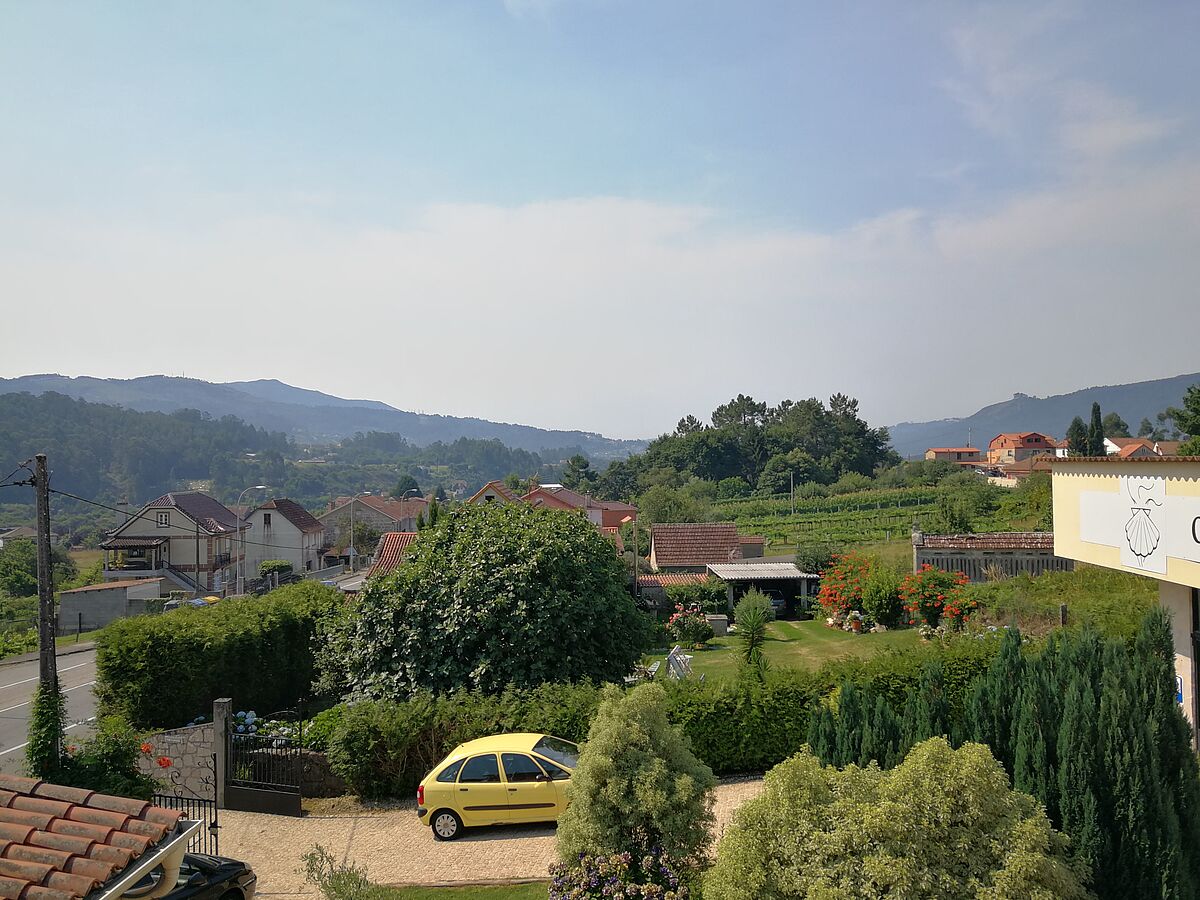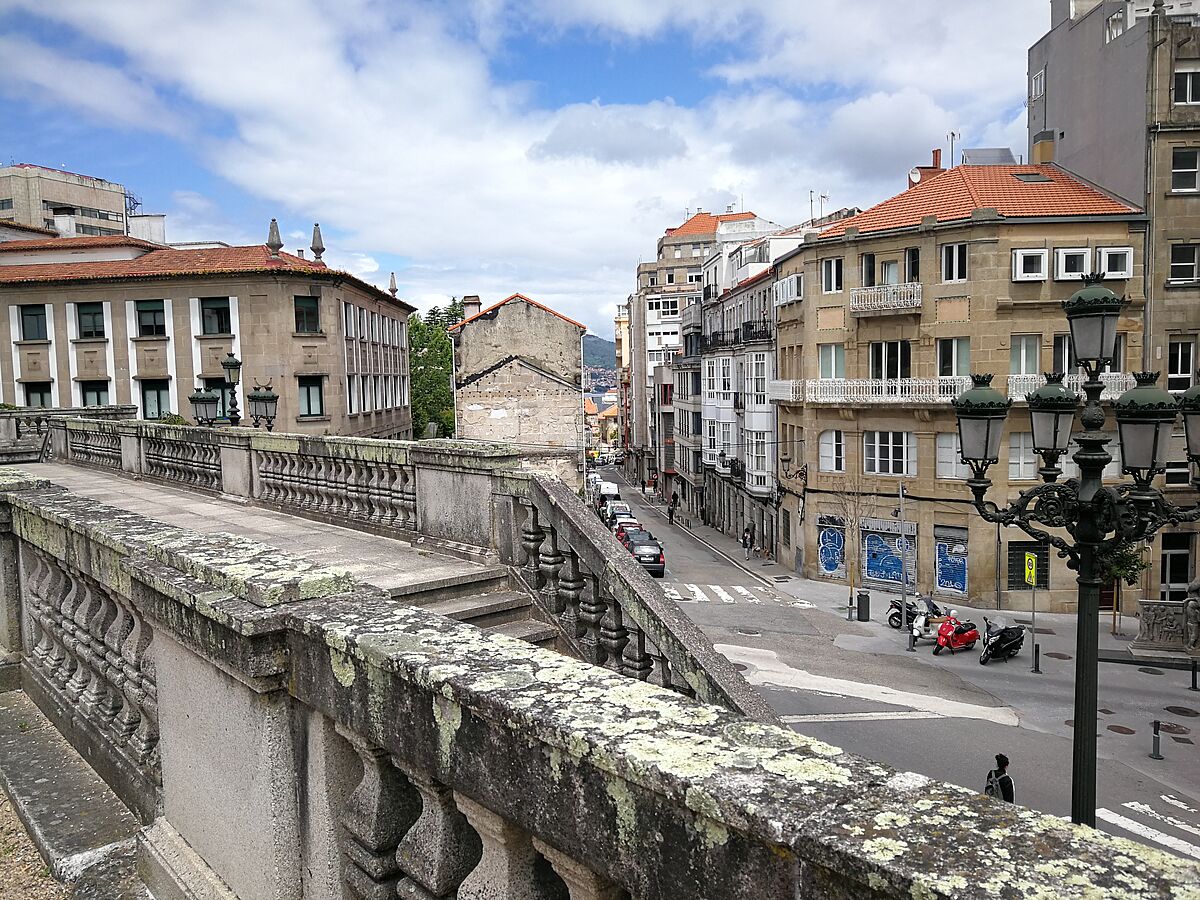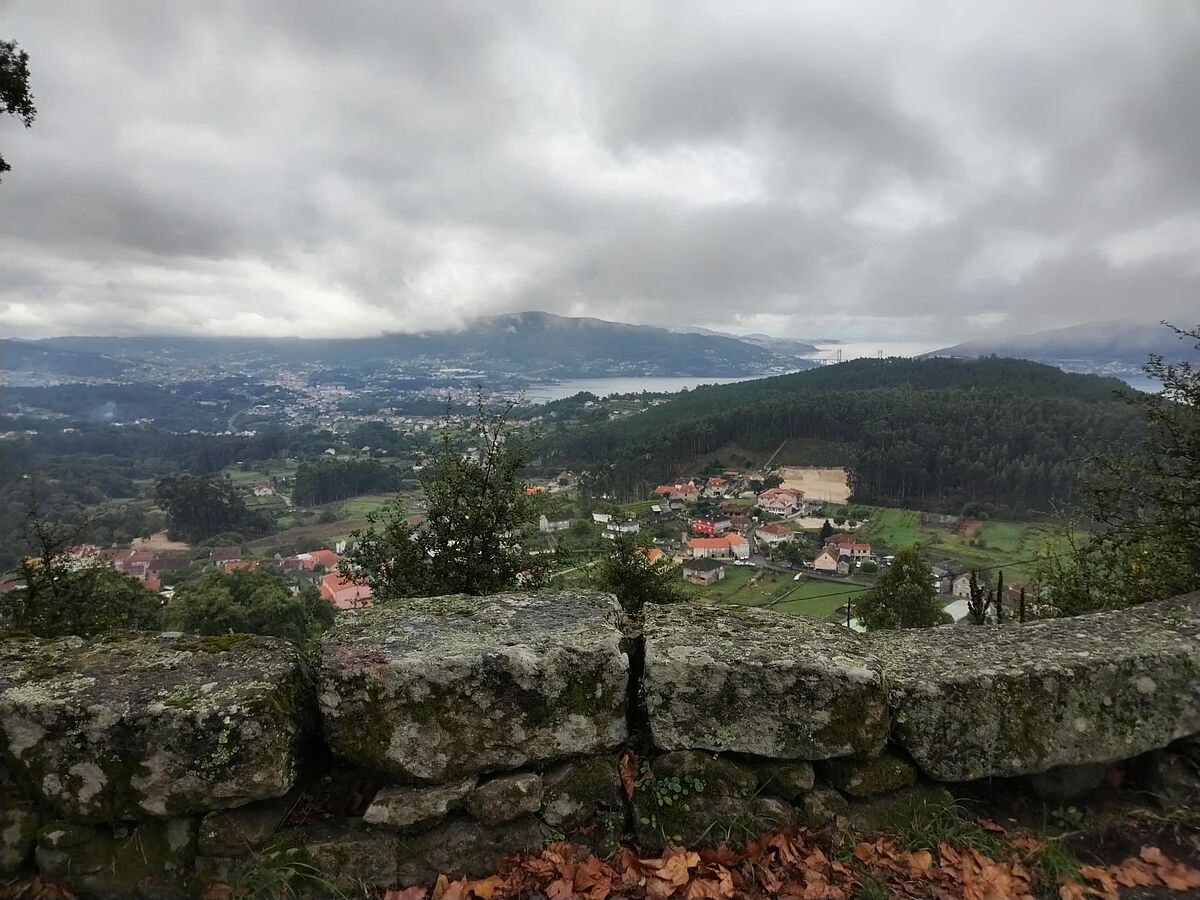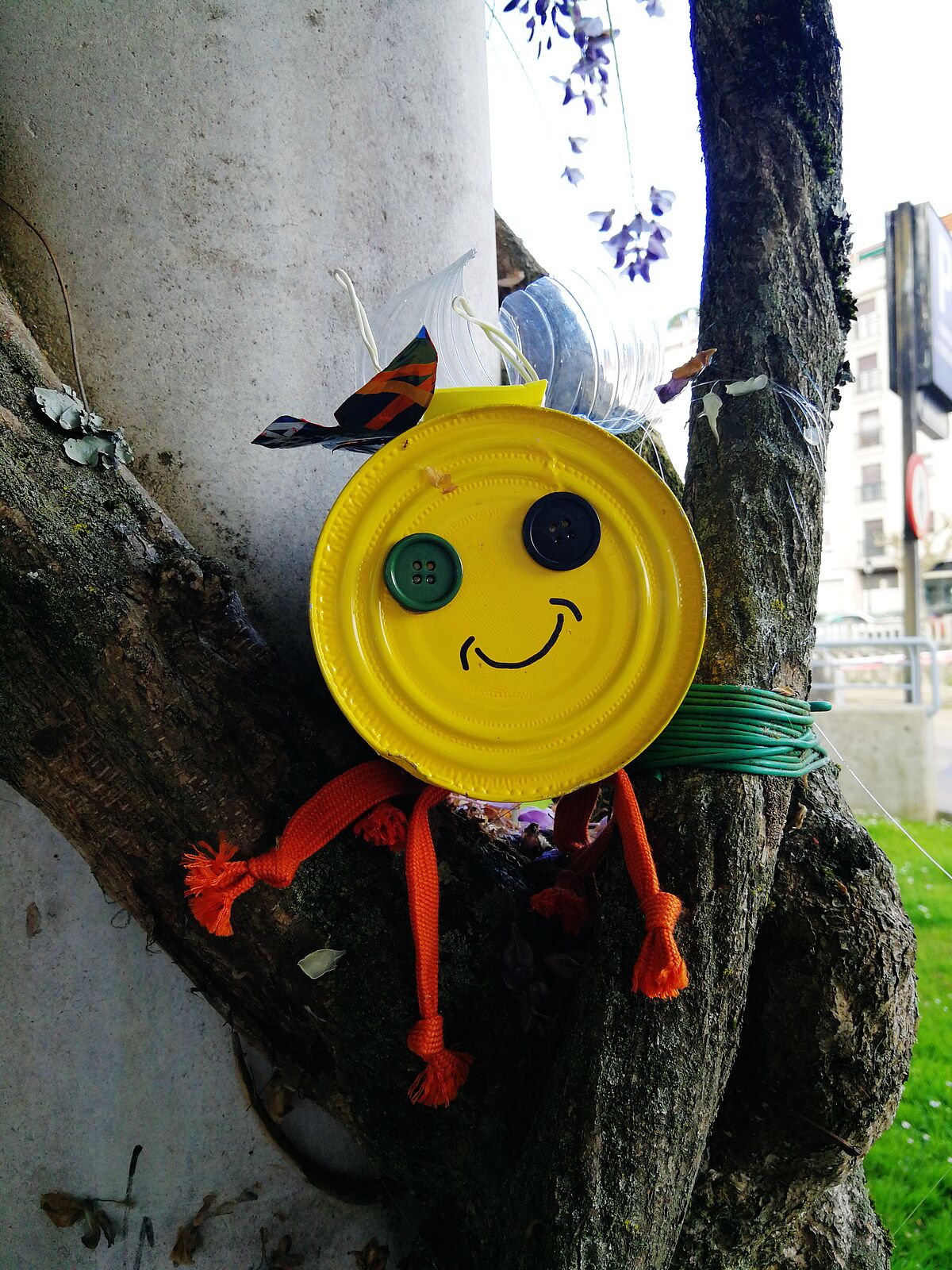Spanien, Cesantes - O Refuxio de la Jerezana
Working next to the Camino de Santiago
Ria T., Leisure and Tourism Management, 8th Semester, Spanien, Cesantes, O Refuxio de la Jerezana, summer semester 2022
The first time I heard about the internship offer at O Refuxio de la Jerezana was 3 years ago by coincidence. She was looking for someone to teach her son German and to help a bit with organizational tasks at the hostel and I was looking for an opportunity to learn a bit Spanish during my semester holidays. Unfortunately, the hostel was still closed, when I was there, so I did not get to experience the real hostel atmosphere and as I originally planned to do my internship in the winter semester, I also did not expect to experience it.
But life does not go as planned and so my internship plans changed to the summer semester. As I was still in touch with Marie and saw her internship offer at my university, I applied to finally see the hostel in action. After some phone calls and a video call Marie and I decided to give it a go, a few months later I was on my way to Spain.
Before the internship
Before starting your internship make sure that you have all the required documents, apart from the internship contract, this includes health insurance and liability insurance which also cover your time abroad. Sometimes companies cover the insurances, but if not, you can consult your current insurance company and they possibly cover your stay abroad as well or you can apply for Erasmus plus insurance.
If your internship in Spain is longer than three months, you will also need to apply for your NIE, which stands for Número de Identidad de Extranjero. Make sure to get an appointment at the local office for the city you’ll be staying at in advance to make sure you have your NIE and Social Security number before your contract starts to avoid any delays or problems. Furthermore, you might have to go take a test from the local government related to Work safety in your field of work, at least that was the case in Galicia. But there is no need to worry, they will provide you with a pamphlet with all the relevant information in advance.
Accommodation
As the hostel is not located in a big city, but in a village, finding accommodation can be a bit trickier. Luckily, I was offered to stay in the shared dormitory where pilgrims usually stay as well, but later when other interns arrived, we started to share a room with just each other. Living directly in the hostel had quite some advantages for us, as we did not have to commute to our workplace and were more flexible regarding our shifts, which had some advantages. But of course, there are also downsides, because the guests may not consider whether you are the one working or not, but still come to you for drinks and questions, if they see you walking around the hostel.
Daily life
You might be surprised to see how many people in Galicia are still going out for dinner at 8pm, for them the day does not end after work, and they are staying home afterwards, but instead they are meeting up. Many restaurants are open to 11pm or midnight, especially on the weekends or if there are any concerts and festivals going on. Even though they are open so late, or maybe because of that, shops and restaurants may have a break during the day from around 2/3pm to 5pm, at least that’s what I experienced during my stay. This does of course not apply for bigger supermarkets such as Froiz, Familia or Lidl. The first two are the supermarkets that you can reach easily from the hostel by taking the bus or walking for 30 minutes. There you can also find a lot of vegan and vegetarian products. And if you cannot find what you are looking for there, you can make a trip to Vigo as there are more options and the just recently opened Vialia Shopping mall right at the train station.
If you want to make traveling by bus more convenient and do not want to search for coins every time you get on the bus, you can also request a “tarxeta de transporte público de Galicia” which will give you different discounts. To get this card, you can go to most offices of ABANCA, fill out the form and pay 2€ once.
Work at the hostel
Each day at the hostel is different and I and the other interns good a good overview of all tasks related to the hostel. On quieter days we would be focusing on organizational tasks like making the work plan, organizing group travels for German Church Youth groups, or adapting the hotel-management-software that we use for our hostel. We would also compare the prices of different supermarkets or do the inventory. During the high season, tasks mainly revolved around the pilgrims and their needs. We were busy replying to calls and emails, checking in guests, answering questions, and organizing backage transportation for pilgrims, who preferred walking with less weight on their shoulders. Whether we were fully booked or only had a handful of guests, there would always be something to do, and I got to experience every department of the hostel.
There were days with less pilgrims or simply pilgrims who did not have many wishes and just relaxed in the community zones after their long walks, and then there were hectic days with a lot of pilgrims and when things did not work out as planned. Especially the last type of days allowed us to learn a lot and to come up with ideas to improve our work processes and find different problem-solving strategies.
Leisure
Galicia is not necessarily the first destination one things of, when planning their travel to Spain, but it surely is worth considering the trip. Especially in summer there are festivals in cities and villages almost every week. And often with free concerts, Art exhibits or other performances, that are worth to see. But Galicia has more to offer than parties and clubs, it is well known for its beautiful nature with many forests and mountains, but also beaches. And not to forget the Islands close to Vigo such as the Isla Cies close to Vigo.
Furthermore, there are many free offers from the local governments, such as weekly hiking or yoga meetings, or courses on how to upcycle furniture. Just have a look at the blackboard of your local “Centro cultural” to see the offers. This is also a great way to connect with locals, who are usually very friendly and more than happy to talk to you. Maybe you can even learn a few words Gallego from them, as it’s the language of Galicia. But no need to worry, they understand and speak Spanish too. There are also local Erasmus Student Networks in Pontevedra and Vigo, the two closest cities that can be easily reached by bus and you may get to know more international students in your area this way.
Conclusion
Even though there were many ups and downs during my internship, all in all it was a great experience, which allowed me to grow a lot as a person and to gain a better insight into different working practices. Besides learning about the different tasks at a hostel, I also had the chance to meet people from all over the world and explore the Spanish culture better, than I could have by traveling there on vacation.
I highly recommend doing an internship abroad, it is an amazing way to experience a country and broaden your horizon.




